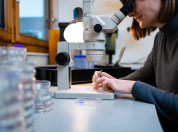Search
Filter by
Type
Tags
Dossiers
Themes
Departments
Active filters
1038 search results
Search results
-
CLIMET: Climate feedbacks and methane cycling in Arctic lakes - enzymes to atmosphere
Arctic lakes are important hotspots for the microbially- mediated production and cycling of methane (CH4), a potent greenhouse gas. The Arctic is warming nearly four times faster than the global average, changing polar ecosystems and with it the potential for positive or negative climate feedback effects. Rising temperatures are changing terrestrial vegetation cover, melting permafrost soils, and increasing glacial discharge from ice caps and ice sheets. Consequently, CLIMET focuses on two potential drivers of lake CH4 cycling in West Greenland that are changing rapidly as Arctic ecosystems change.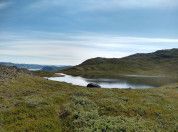
-
Samin Farhangi
Postdoc
-
Fleur van Crimpen
Postdoc -
Delta-ENIGMA
Delta-ENIGMA provides infrastructure for intensive field and experimental laboratory research to understand how organisms, currents, waves, water discharge and sediment transport jointly shape the Dutch delta-landscape. This integrated approach, known as biogeomorphology, lies at the core of Delta-ENIGMA. The program serves as the Dutch contribution to DANUBIUS-RI, a European research infrastructure for studying river-delta-coastal systems. The consortium members are Utrecht University, TU Delft, University of Twente, Wageningen University & Research, Royal Netherlands Institute for Sea Research (NIOZ), Deltares and TNO. Delta-ENIGMA is coordinated by the Department of Physical Geography at Utrecht University.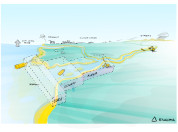
-
Sinderhoeve
The Sinderhoeve is an experimental field station with a variety of facilities for both aquatic and terrestrial research on the effects of chemicals in the environment, as well as more basic ecological research questions. It provides possibilities to perform experiments supporting the higher tiers in environmental risk assessment. The Sinderhoeve is part of Wageningen Environmental Research but is also available for research from external parties.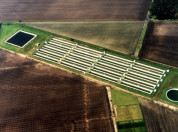
-
Flume and wave mesocosms
This series of facilities hosts different types of flume systems which serve to control water movement by a combination of flow and waves. The flume systems are used to study how water movement affects spatial development, functioning and resilience of the estuarine and coastal ecological landscape. The facility also hosts a wave mesocosm, to study the interaction between hydrodynamics and benthic organisms.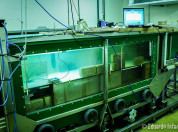
-
Underwater laboratory
This underwater laboratory is used to study how to enhance biodiversity on subtidal, hard substrates, like dikes and other man-made structures like pillars or offshore wind farms. The facility is unique in bringing the hard to reach subtidal environment to the easily accessible tidal area of the Eastern Scheldt at the very doorstep of NIOZ at Yerseke, Zeeland. It is a collaboration between Rijkswaterstaat, Hogeschool Zeeland and NIOZ.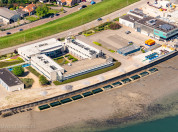
-
Komal Gogi
Project Manager
-
Yuxi Guo
Postdoc
-
Does north-south adaptation of animals also protect against climate change?
‘Can animal populations adapt to climate change by becoming genetically similar to more southerly populations?’ That is the question posed by ecologist Natalie van Dis. Knowledge about this could indicate which populations are most at risk from the changing climate. She has been awarded a Veni grant from NWO to investigate this at NIOO over the next three years.